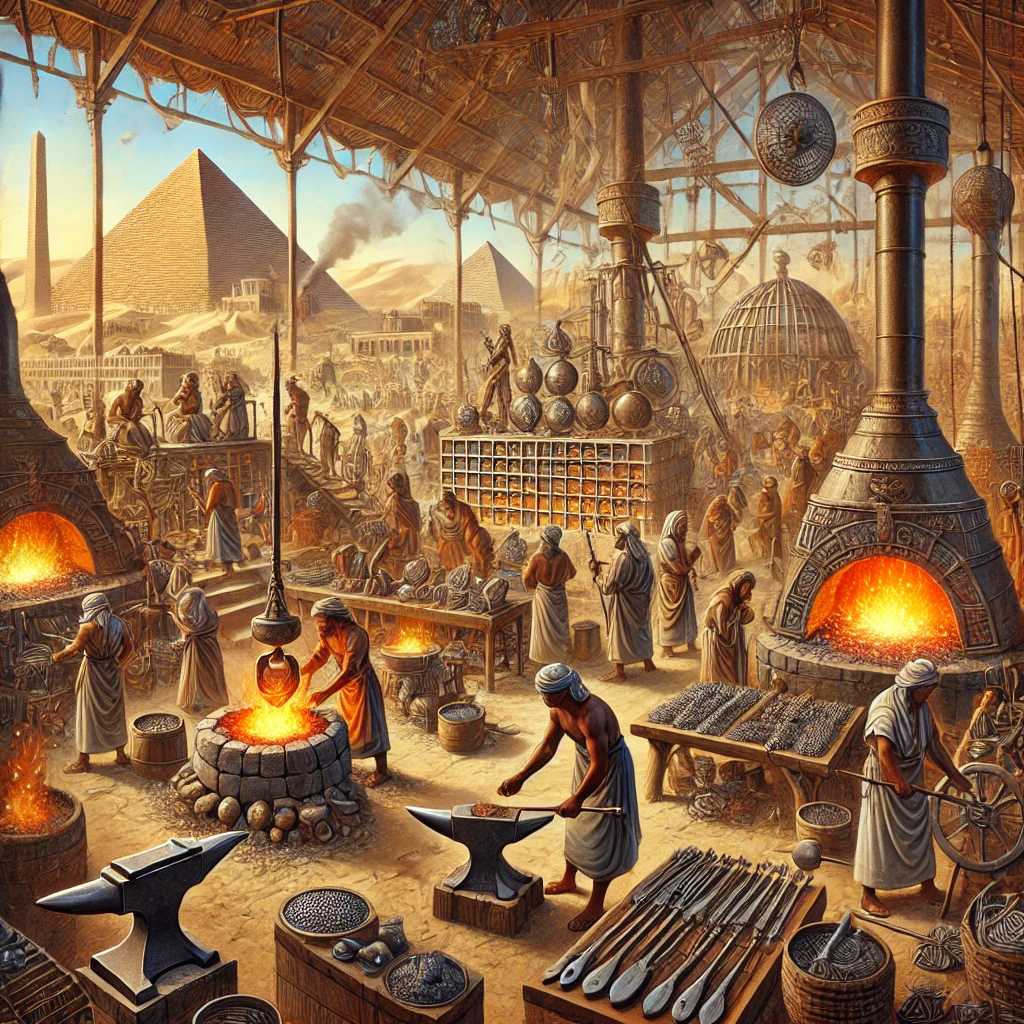When we think of the Iron Age, our minds often drift to the Mediterranean and the Near East. Yet, beyond these familiar regions, a remarkable civilization thrived along the banks of the Nile in what is now Sudan. The Kingdom of Meroë (circa 800 BCE–350 CE) was more than just another ancient state; it was a powerhouse of ironworking long before many of its neighbors had perfected the craft.
Archaeologists have uncovered evidence that Meroë’s iron industry was both extensive and technologically advanced. Its residents built large furnaces and workshops, refining techniques to produce high-quality iron tools and weapons. This abundance of iron not only supported their agriculture and warfare capabilities, but also fueled a robust trade network stretching across Africa and into the Mediterranean world. Through iron mastery, Meroë became a cultural and economic bridge, influencing art, religion, and political structures in ways still not fully understood. Today, as researchers continue to study the ruins of this Nile civilization, we’re rediscovering a rich chapter of ancient history often overshadowed by the fame of Egypt and Rome.
References
Welsby, D. A. (1998). The Kingdom of Kush: The Napatan and Meroitic Empires.
British Museum Press.Edwards, D. N. (2004). The Nubian Past: An Archaeology of the Sudan. Routledge (Chapters on Meroitic culture).

